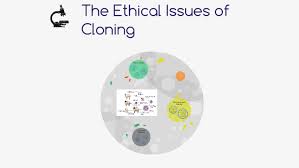Ethical Debates of Cloning Today
Apr 25, 2023
This essay describes some of the ethical debates surrounding modern cloning.
Cloning has been a hot topic for decades, and it continues to spark heated ethical debates today. One of the most commonly discussed topics is reproductive cloning, which involves creating an exact genetic copy of an existing organism. This technique has raised many questions about its safety, efficacy, and morality in human contexts.
The main argument against reproductive cloning is that it would create an imbalance in society by allowing wealthy individuals to pay for designer babies with certain desirable characteristics or traits. Such outcomes could lead to increased inequality and discrimination in society. In addition, there are concerns that undesirable genes or health risks could be passed on to future generations as a result of reproductive cloning if ethical standards are not followed carefully.

Another ethical concern about cloning is that it could lead to the devaluation of human life and a diminished sense of personal identity. Proponents of cloning argue that an exact genetic duplicate would not be the same individual as its original, since each person's personality and experiences are shaped by more than just their genes. However, opponents suggest that this argument overlooks the psychological effects of being raised in a clone-family or having an identical twin.
Finally, some individuals worry about creating "superhumans" through gene manipulation or selective breeding practices. While there have been no successful attempts at producing such beings yet, many fear that such advances could lead to dystopian consequences if not carefully regulated.
In conclusion, while some believe cloning could help society progress, there are still many ethical debates about the implications of cloning in modern times. It is important for researchers and policymakers to consider these issues carefully before making any decisions about how to go forward with this technology. Ultimately, it may come down to finding a balance between allowing progress and protecting human dignity.
